
Tips For The Perfect Florida Landscaping
Published: 07/10/2022 | Updated: 29/03/2023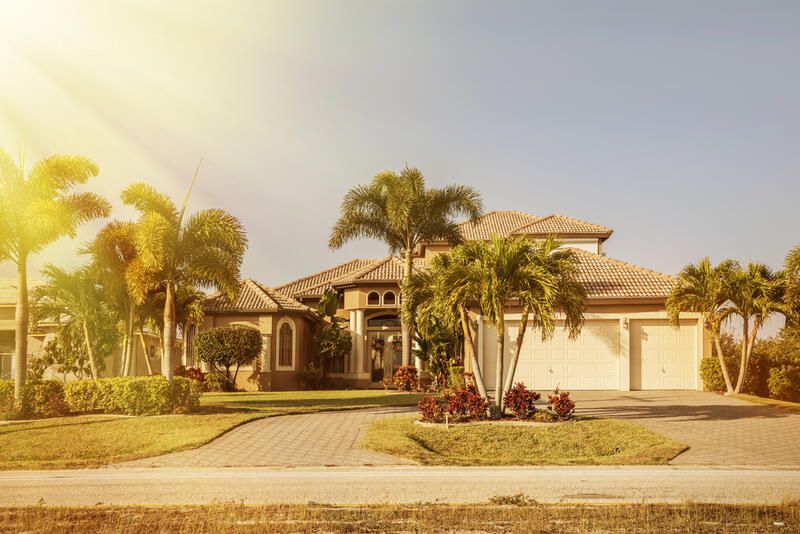
Homeowners across the sunshine state may struggle to create a gorgeous and functional landscape due to the intense Florida heat and sandy soils. These factors transform the beauty of gardening into a real pain, which is why the University of Florida/IFAS Extension has dedicated much time and effort to come up with a list of principles or "unbreakable rules" to take the tussle out of garden maintenance, irrigation, fertilization, and composting.


Residents who enjoy the pleasures of a gorgeous garden live by these recommendations and at ShrubHub we wanted to share our take on Florida-friendly landscaping to further spread the word and ensure the message is received.
Conscious landscaping practices aren’t all about simple makeovers and beautifications. From the chemicals you incorporate into your gardening routine to the amount of water you dedicate to it daily, landscaping maintenance choices impact the environment, native plant life and wildlife, and the residents’ quality of life. The more people who know how to leave a positive impact on their surroundings, the better it will be for all of us and the generations to come.
Our commitment to the environment extends to our landscape design professionals, who prioritize crafting climate-conscious designs for every client, without compromising their style preferences and functionality needs.
Browse our affordable, all-online design packages to get started on the renovation of your dreams!
Florida-friendly landscaping ideas
The best way to protect Florida’s natural resources is to learn how to create healthy landscapes, focusing on sustainability and adapting to any lifestyle and aesthetic preferences.
Aim For Native Plants
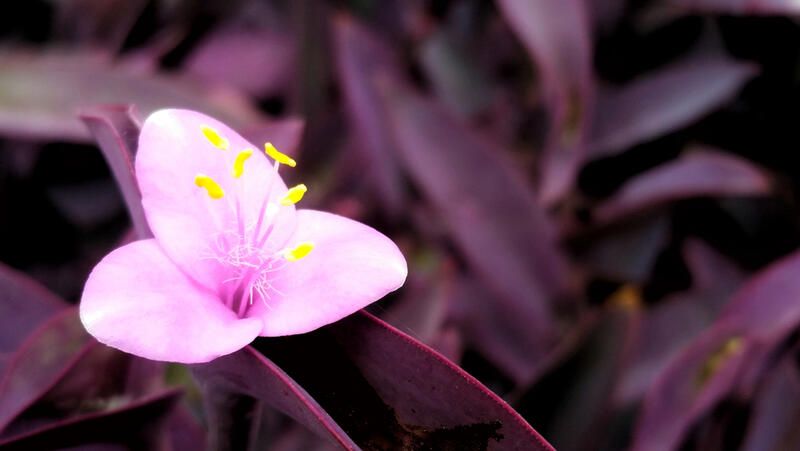
The road to a more sustainable, low-maintenance lifestyle can start with a healthier landscape. Make sure to include Florida-friendly plants, or better yet, Florida-native plants. As a general rule, native plant life adapts more easily to an area’s soil and climatic conditions, which in turn means less maintenance, better water conservation practices, less weeding, and less fertilizing.
In essence, don’t try to force plants into a climate they don’t belong to. Forcing this coexistence would only lead to the plant’s suffering, and it would result in more expenses and many hours of hard work for you.
Aim for native plants that naturally attract wildlife and are fit for your area’s climate, water restrictions, and soil conditions. Plan your landscape to include diverse species of trees, shrubs, and flowers. Use low-maintenance ground covers such as Jasmine Minima, Emerald Blanket Carissa, Purple Queen, and Perennial Peanut.
You can browse the Florida Native Plant Society’s full list of native plant life to start looking for the best options for your upgraded outdoor space. Once your plants are fully grown and established, they’ll require minimal maintenance, additional water, pesticides, and fertilizer, saving you time and money spent on extra resources.
Group Plants with Similar Needs
Watering and fertilizing your garden can be effortless with the right amount of planning. Consider your plants’ wind tolerance, water, soil, and light requirements to group the ones with similar needs for less supplemental watering, less pruning, and maintenance.
Grouping your plants will also attract more birds, butterflies, and other critters, so plant your species closer together for a front-row seat to wildlife gatherings during the spring!
Smart Fertilizing Techniques
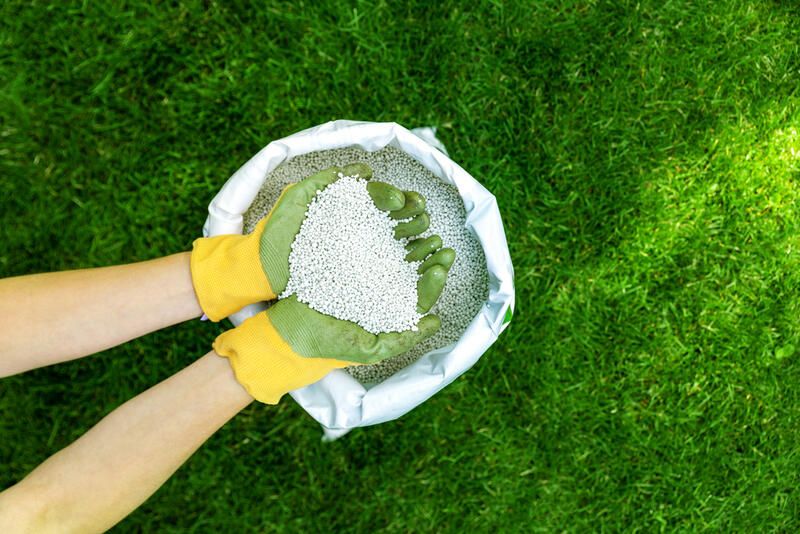
Fertilizer runoff due to unnecessary amounts of product can lead to severe water pollution. Use your fertilizers correctly to provide your plants with their much-needed nutrients without risking contamination of your water resources.
Appropriate fertilization routines promote your plants’ growth, help them thrive, increase their flowering and fruiting, and enhance their already beautiful colors and overall appearance. On the contrary, poor fertilization is harmful to your plants and to the environment. The UF/IFAS has recommended rates and application timings that will help you prevent damage from runoff, and the fertilizers’ labels also provide specific directions you should follow.
Reuse Yard Waste
Composting your yard waste is an excellent way to give your garden a nutrient boost – keep the valuable nutrients that result from mowing, raking, and pruning and reuse them in your yard. By composting your garden’s organic waste, you’ll conserve as many nutrients as possible by giving them back to your soil.
This environmentally-friendly recycling practice is one of the most sustainable ways of creating natural fertilizer that will be a great source of nutrients for your shrubs, trees, and flowers.
By composting, you won’t only repurpose your yard waste: any natural kitchen scraps like wilted greens, and your favorite fruits and veggies peels will be welcome into your compost bin. You can add them to your garden before planting your new additions, or mix them into your soil for older, established plants.
Preserve Water
All water-wise gardens should have efficient irrigation systems integrated to conserve water. A thoughtfully crafted irrigation system must be calibrated to maximize its efficiency. Ideally, it has rain shutoff functions to prevent excess water after a rainfall, it irrigates considering each plant’s water needs, and should be checked regularly for leaks and overspray.
Water efficiently
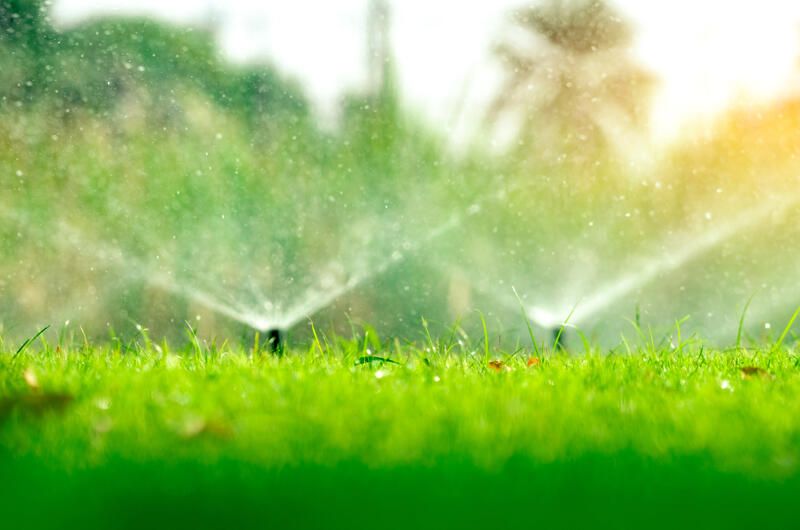
Efficient irrigation makes a significant difference in the number of resources spent (less water, less money on water bills), and it’ll ensure a more lively and enhanced appearance for your plants.
Irrigate only when needed and be mindful of the recommended watering rates. Over-watering can weaken your plants’ roots and promote infestations.
Retain Soil Moisture
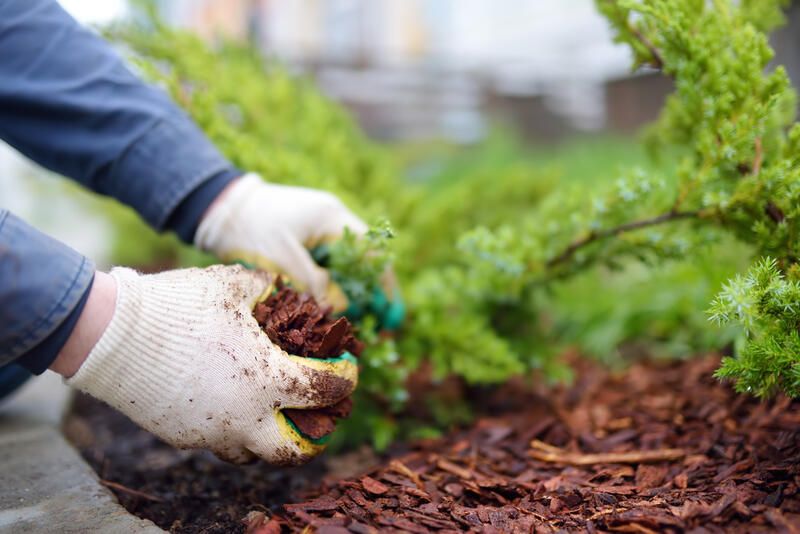
Incorporating a thick layer of mulch (2 to 3 inches deep) into your landscape will help retain soil moisture and inhibit weed growth, keep your plant roots cool during Florida’s scorching hot summers, and give your garden a more attractive and finished appearance.
There are many types of mulch, both organic and inorganic, some of which are bark, pine needles, and shredded leaves, among others. The most recommended ones are the organically harvested ones such as pine straw, eucalyptus, and melaleuca. Try to avoid getting cypress mulch, as it’s not usually harvested sustainably.
Use Stormwater Runoff
Capture rainwater can be repurposed to irrigate your landscape, and by managing this runoff with proper control features, you’ll be protecting your plants from erosion. If possible, try to allow rain to naturally soak into the soil by choosing permeable materials for your walkways such as porous pavers, gravel, or rain barrels.
Attract Wildlife
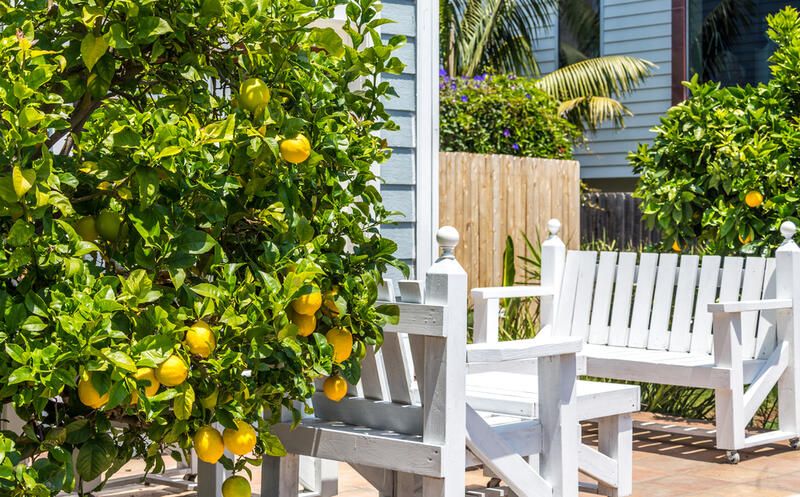
Many sunshine state residents are planning their landscapes with wildlife in mind to maintain a healthy ecosystem. Choose plants that will attract birds, bees, butterflies, and other insects to pollinate your garden and prevent plant damage from common pests, reducing insecticide use in the process!
Aim for a mix of various plants with nectar, seeds, fresh fruits, flowers, or berries that can serve as food for these species.
Keep Out All Pests
There are pest management strategies you can use to reduce the number of chemicals that go into your landscape to benefit your family, your plants, native wildlife, and the environment. First of all, select pest-resistant plants and protect wildlife species that naturally help control harmful pests.
If you find that any of your plants have been compromised, remove any affected leaves and plant parts. Always make sure to treat the damaged spots instead of unnecessarily treating the healthy parts of your plants.
The first step towards a sustainable yard with a first-class landscape design
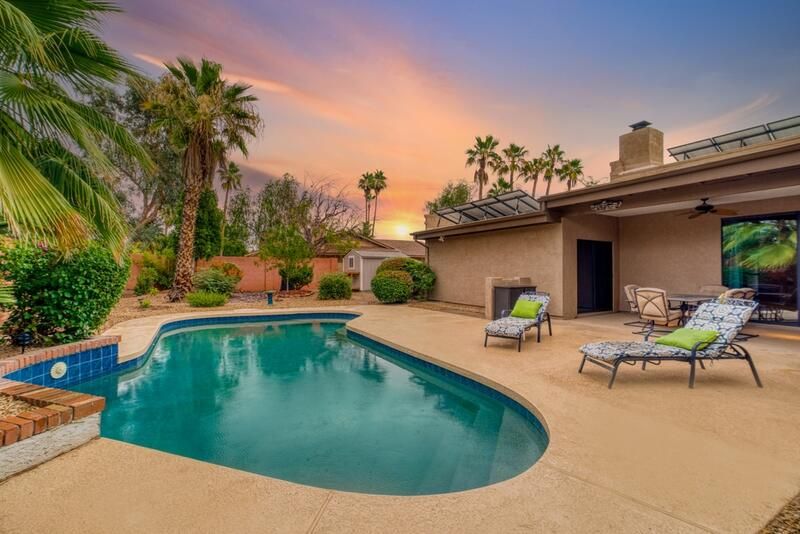
There's plenty of fun to be had when it comes to Florida landscaping!
Once you’re ready to update your house for a fresh new look, ShrubHub can help you get started with a tailored design that suits your needs, enhances the look of your property, and significantly increases its value.
Our all-online services allow you to start your renovation from the comfort of your own home! With the guidance of an experienced Project Manager, we will bring your dream yard to life, and thanks to our very latest 3D technology, you’ll know exactly how everything will look from an eye-level perspective as if you were walking through your yard.
Sign up through our website www.shrubhub.com to get started!


